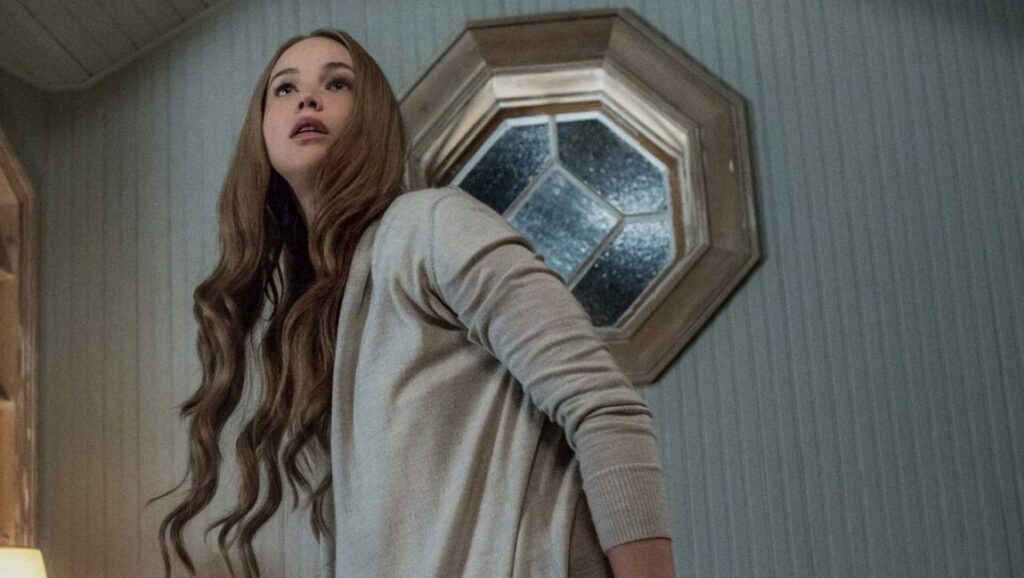It’s difficult to argue that Darren Aronofsky’s films are poorly executed, at least on a formal level; his largely allegorical works are often manic, intense, portentous, and meticulously designed, it’s just that they’re also so sophomorically pleased with themselves, rarely approaching their allegories from a perspective of any real insight. Requiem for a Dream is a whirlwind of a viewing experience, but it boils down to little more than a rote (and relatively misogynistic) cautionary tale about drug abuse. Black Swan is one more film for the increasingly tedious subgenre of Auteur Director Makes Art About the Suffering Creatives, only this one was made by a guy who really likes Suspiria and The Red Shoes (which itself is already about that). Aronofsky’s latest, mother!, takes the filmmaker’s ambitions one step further, and mixes the pain of birth with something your really bright film school dormmate says when they get too stoned: “What if, like, the Bible, man?”
The dazzling spectacle on display here just isn’t enough to distract from the sheer thudding obviousness of all that dopey allegory.
In a secluded mansion, a famous poet identified only as “Him” (Javier Bardem) struggles to complete his latest work. His wife, “Mother” (Jennifer Lawrence) busies herself with renovating their home. One day, a man (Ed Harris) and his wife (Michelle Pfeiffer) show up and quickly make themselves horrible houseguests. Things escalate to a point that would be cruel to give away, since the steep trajectory of craziness is the major source of pleasure. For the first half, you’d be forgiven for thinking you were at David O. Russell’s Rosemary’s Baby; there’s a lot of swirling camerawork around a lot of great actors all getting shouty. But once the apocalypse begins in earnest in the back hour, mother! becomes a full-blown riot, with DP Matthew Libatique’s grainy, low-light, constantly roaming 16mm and the very aggressive sound design inducing a kind of under-the-skin anxiety, even while you might be rolling your eyes at the sheer silliness of the whole thing.
The dazzling spectacle on display here just isn’t enough to distract from the sheer thudding obviousness of all that dopey allegory. Aronofsky throws in endless reference to scripture: Adam and Eve, Cain and Abel, tying the artists creation to God’s, likening an avaricious throng of the poet’s fans to the ungrateful hordes of humanity desecrating his Good Work. It’s seductive to try to put the puzzle pieces together but it’s also not ultimately very difficult, despite all the heavy lifting Aronofsky’s doing. And at the end, all that’s left is a smirk, a kind of smug “Did you get it?” poke in the ribs.


Comments are closed.